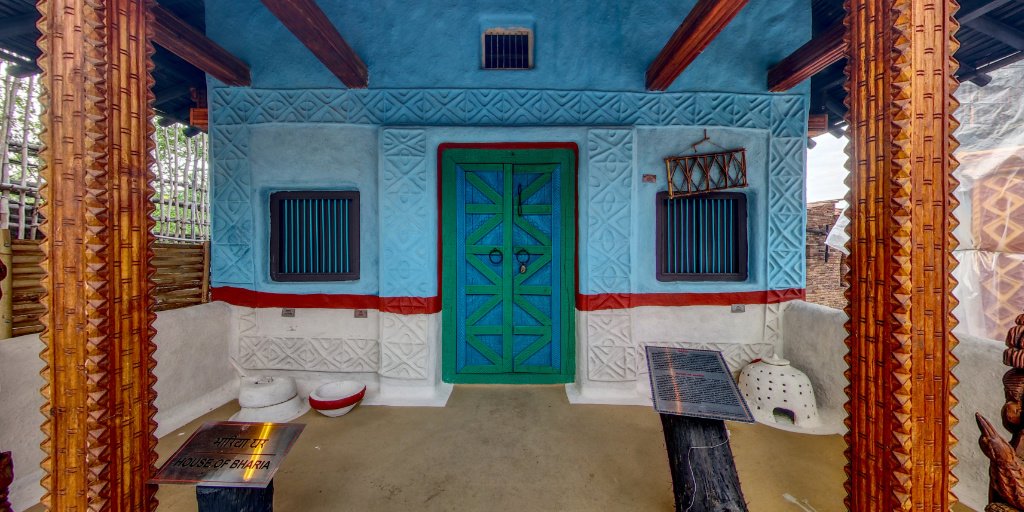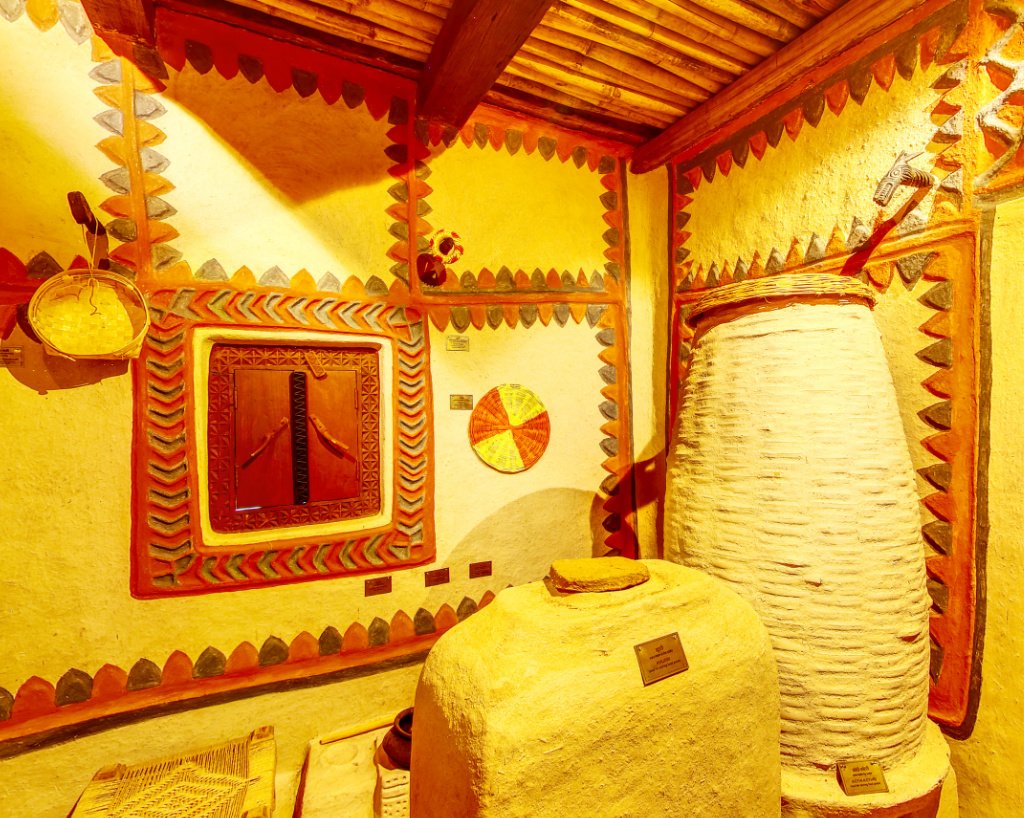HOUSE OF BHARIA
The Bharias construct their own houses, reflecting their self-reliance. These indigenous people primarily inhabit flat regions, where they create settlements known as Bharia Dhanas, similar to the Korkus’ dwellings. Bharias prefer row houses aligned on both sides, a layout that provides a sense of security.
Each house is accompanied by a substantial fence, automatically increasing the distance between neighboring homes. Bharia houses are crafted from wood, straw, and bamboo sheets, with materials sourced from the surrounding forests. The Bharias even produce their own roof tiles, known as Khaprels.
Strategically, Bharias often build their houses on elevated terrain. This choice allows them to oversee their agricultural activities more effectively. Typically, a Bharia house features a spacious room with a kitchen area. The room is partitioned using clay and bamboo sheets.
Outside, a wooden structure called a ‘Saar’ serves as a tethering point for cattle. In the house courtyard, a ‘Mudha’—constructed from four thick sticks—provides a platform for drying mahua, guli, and mango kernels.

